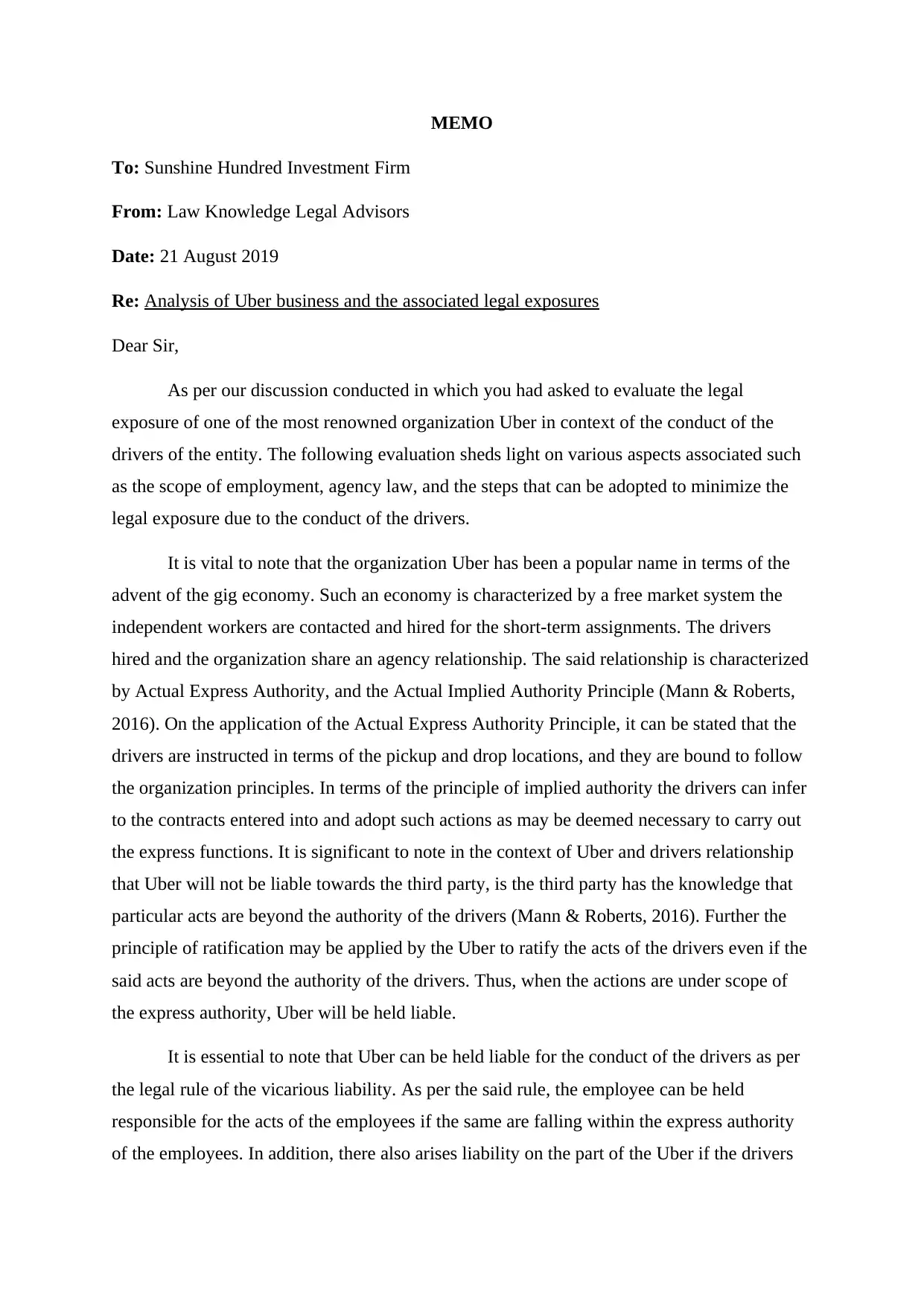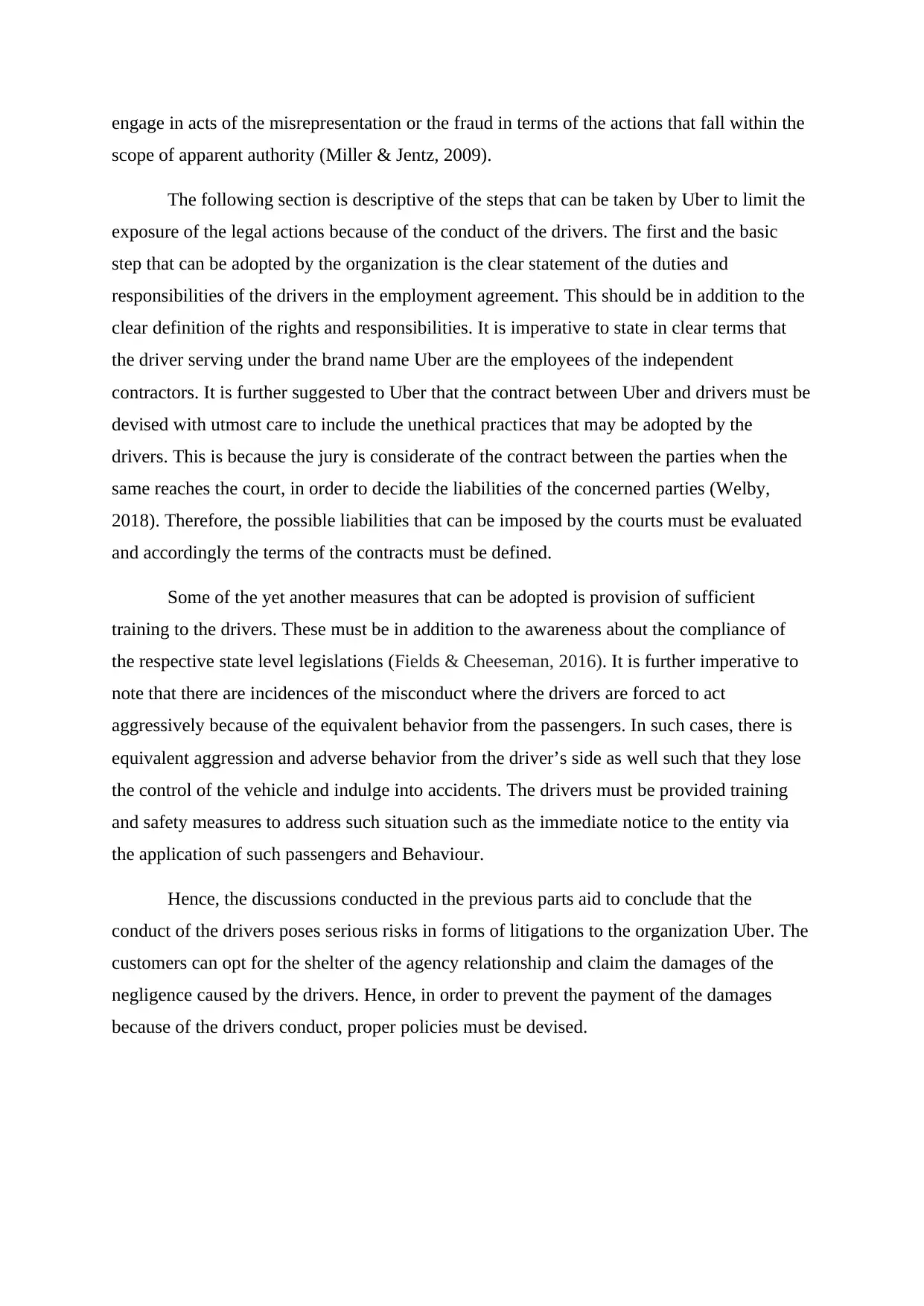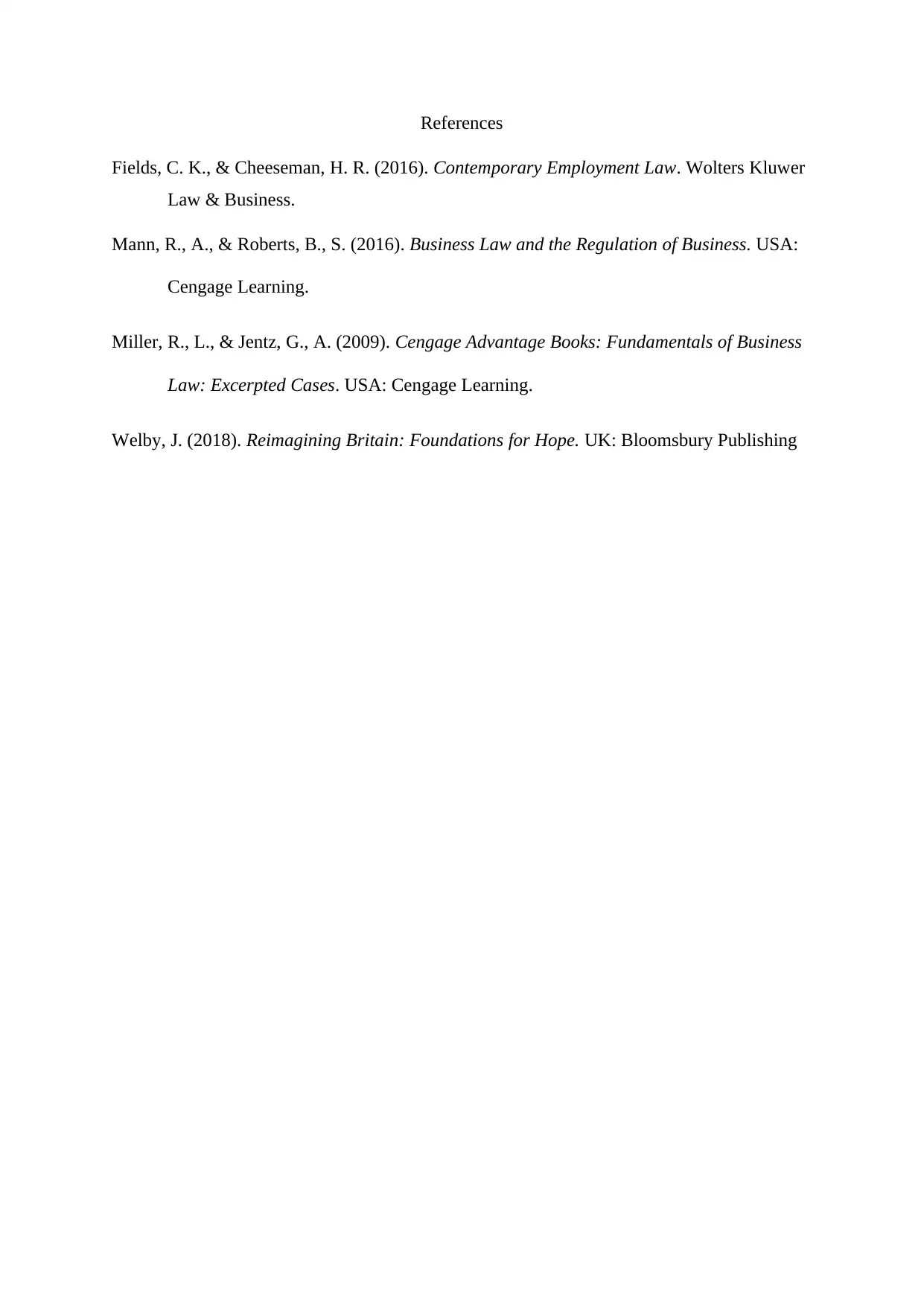Law Knowledge Legal Advisors: Uber Driver Legal Exposure Analysis
VerifiedAdded on 2022/10/04
|4
|979
|18
Report
AI Summary
This legal memo, prepared by Law Knowledge Legal Advisors for Sunshine Hundred Investment Firm, analyzes Uber's legal exposure concerning the conduct of its drivers within the context of the gig economy. It examines the application of agency law principles, including actual express authority, implied authority, and vicarious liability, to the relationship between Uber and its drivers. The memo addresses the concept of 'scope of employment' and its implications for Uber's liability, particularly in situations involving driver misconduct, such as the case of a drunk driver causing a fatal accident. The analysis uses agency law to determine Uber's responsibility in such scenarios. Furthermore, the memo outlines several crucial steps Uber can take to mitigate its legal exposure, including clearly defining driver responsibilities in employment agreements, providing adequate training, and addressing potential misconduct. The memo concludes that Uber faces significant legal risks due to its drivers' actions and stresses the importance of proactive measures to prevent litigation.
1 out of 4











![[object Object]](/_next/static/media/star-bottom.7253800d.svg)